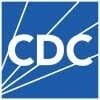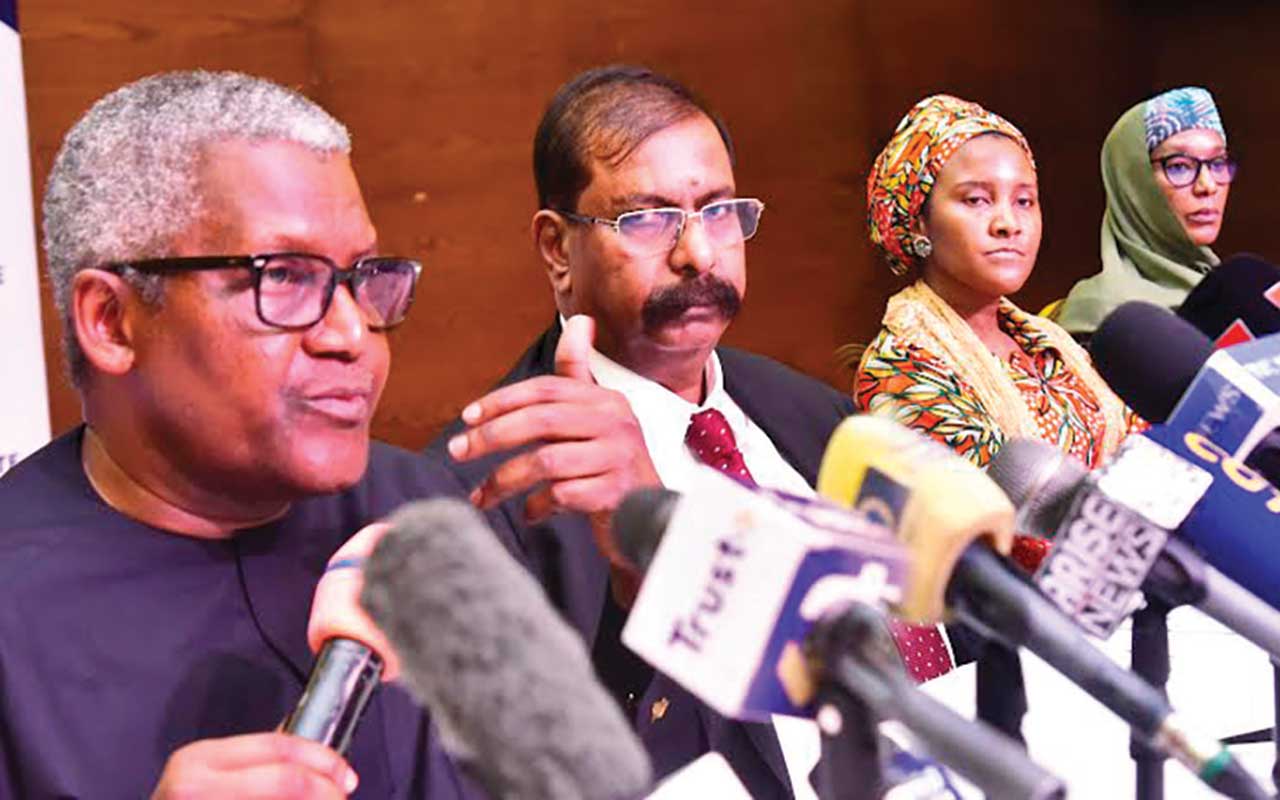US CDC Sounds Alarm: Nigeria's Fever Misdiagnosis Crisis Exposed

The United States Centre for Disease Control and Prevention (US CDC) has expressed significant concerns regarding Nigeria's limited laboratory diagnostic capacity for Acute Febrile Illnesses (AFIs). This deficiency, according to the US CDC, is directly contributing to the misdiagnosis and underdiagnosis of AFIs, subsequently leading to inappropriate patient treatment and poor health outcomes. This critical warning was delivered during a media roundtable held in Abuja, where the US CDC, in close collaboration with the Nigeria Centre for Disease Control and Prevention (NCDC) and other key partners, underscored their concerted efforts to fortify AFI surveillance systems across the nation.
Acute Febrile Illness is broadly defined as any condition characterized by the rapid onset of fever, which may or may not be accompanied by other symptoms. Oladipupo Ipadeola, Senior Public Health Specialist for Epidemiology and Surveillance at the US CDC Nigeria, elaborated that AFIs can stem from various pathogens, including bacteria, viruses, protozoa, or fungi. While most prevalent among children and young adults, AFIs have the potential to affect individuals across all age demographics. Ipadeola further explained that AFI surveillance involves the systematic monitoring and thorough investigation of acute fever cases that manifest suddenly and typically have a short duration.
He emphasized the severity of the situation in Nigeria, stating, “In Nigeria, limited laboratory diagnostic capacity for AFI is leading to misdiagnosis or underdiagnosis of diseases, and inappropriate treatment and management of patients.” Ipadeola highlighted several critical gaps in AFI surveillance that demand immediate attention, such as the absence of clear policy frameworks, restricted geographical distribution of testing facilities, and overall inadequate diagnostic capabilities. He asserted that addressing these pervasive surveillance gaps is absolutely essential. Furthermore, the overlapping symptomatic presentation of AFIs makes accurate diagnosis inherently challenging without sufficient and precise testing. Strengthening these surveillance mechanisms, he noted, is paramount for the early detection of potential outbreaks, gaining a deeper understanding of disease epidemiology, and facilitating the timely implementation of effective control measures.
Ipadeola commended the Federal Government of Nigeria for the proactive steps it has already initiated, which include developing surveillance and monitoring systems, implementing malaria control programmes, executing widespread vaccination campaigns, and fostering strategic partnerships aimed at enhancing AFI-related activities. He revealed that the US CDC, in partnership with the NCDC, has successfully established sentinel surveillance sites across all six geopolitical zones of Nigeria. These sites have collectively processed and tested over 11,000 samples for a range of priority diseases, including malaria, dengue, yellow fever, Lassa fever, and COVID-19. Additionally, the agency has provided substantial support for diagnostic improvements, which encompasses upgrading laboratory equipment, introducing advanced multiplex PCR testing technologies, and providing comprehensive training for personnel in selected healthcare facilities. Since August 2024, the coordination and management of this crucial programme have been officially transitioned to the NCDC, with the US CDC maintaining its commitment to provide ongoing technical support, rapid diagnostic kits, and essential reagents.
Farah Husain, Programme Director at the Division of Global Health Protection, US CDC Nigeria, reiterated the critical urgency of enhancing AFI surveillance during her opening remarks. She stated, “Today’s engagement is a broader effort by the U.S. CDC in collaboration with the NCDC to establish a sustainable AFI surveillance system in Nigeria. The overall intent of this system is to help improve early detection, enhance laboratory capacity, strengthen data, and ultimately help us respond better and faster to outbreaks.” Corroborating this sentiment, Fatima Saleh, the NCDC’s Director of Surveillance, stressed the imperative for intensified advocacy and robust collaboration across all tiers of government to ensure that interventions are consistently evidence-based. “We must strengthen surveillance systems, improve response capacity, and scale up outreach efforts,” she asserted, emphasizing that this requires sustained support, broader stakeholder inclusion, and unwavering political will to safeguard the health and well-being of Nigerian citizens. Experts present at the event collectively concurred that resolutely addressing the existing deficiencies in diagnostic capacity, policy frameworks, and testing infrastructure is fundamental to significantly improving Nigeria’s response to AFIs and, by extension, bolstering the nation’s overall disease surveillance and health security landscape.
Recommended Articles
Devastating Lassa Fever Outbreak Claims 168 Lives Across 21 Nigerian States: NCDC Report

Nigeria is facing a severe Lassa fever outbreak in 2025, with 168 confirmed deaths across 21 states and a high case fata...
Abuja on Edge: Ebola Threat Neutralized as FCTA Gives All-Clear

The FCT Administration and NCDC have confirmed no Ebola cases in Abuja after an index patient tested negative, while sim...
Urgent Travel Alert: Nigeria & U.S.-CDC Boost Surveillance for Acute Fever Threat

The Nigerian government and the US-CDC are intensifying their collaborative efforts to strengthen national surveillance ...
Urgent Call: Global Stakeholders Demand Billions to Combat Cancer's Grip on Africa!

Global stakeholders gathered in Abuja for the "One Walk, One Fight" Cancer Awareness Walk, stressing the need for fundin...
Energy Boom: Dangote Refinery Expands to Staggering 1.4M BPD, Experts Hail Move!

The Dangote Petroleum Refinery is set to become the world's largest, expanding its capacity from 650,000 to 1.4 million ...
You may also like...
Why Your First Failure Might Be the Best Thing That Ever Happened to Your Business

Failure isn’t the end of entrepreneurship, it’s the education success never gives. Here’s why your first business collap...
Consumerism vs Culture: Is Africa Trading Values for Trendy Lifestyles?

Is Africa trading its cultural values for trendy lifestyles? Explore how consumerism, foreign brands, and social media p...
The War on Boys: Are African Male Being Left Behind in Gender Conversations

Why are African boys and men often left out of gender empowerment programs? Explore how emotional suppression, lack of m...
Pay Slip, Motivation Slips: The Silent Crisis Among the Working Class

Across Nigeria, millions of workers are trapped in jobs that pay just enough to survive but too little to live. Beneath ...
Premier League's Unsung Heroes: Bournemouth, Sunderland, and Tottenham Shockingly Exceed Expectations

This Premier League season sees teams like Bournemouth, Sunderland, and Tottenham exceeding expectations. Under Thomas F...
El Clasico Fury: Yamal Controversy and Refereeing Blunders Ignite Post-Match Debates
)
Real Madrid secured a 2-1 El Clasico victory over Barcelona amidst significant controversy surrounding a late penalty de...
Kate Hudson & Hugh Jackman Eyeing Oscars with ‘Song Sung Blue’ Breakthrough

"Song Sung Blue" tells the true story of Mike and Claire Sarina, who find love and acclaim as a Neil Diamond tribute ban...
Pennywise Unleashes Horror: 'It: Welcome to Derry' Premiere Shocks Viewers

HBO Max's "IT: Welcome to Derry" plunges audiences into 1962 Derry, Maine, exploring the origins of Pennywise with a bru...